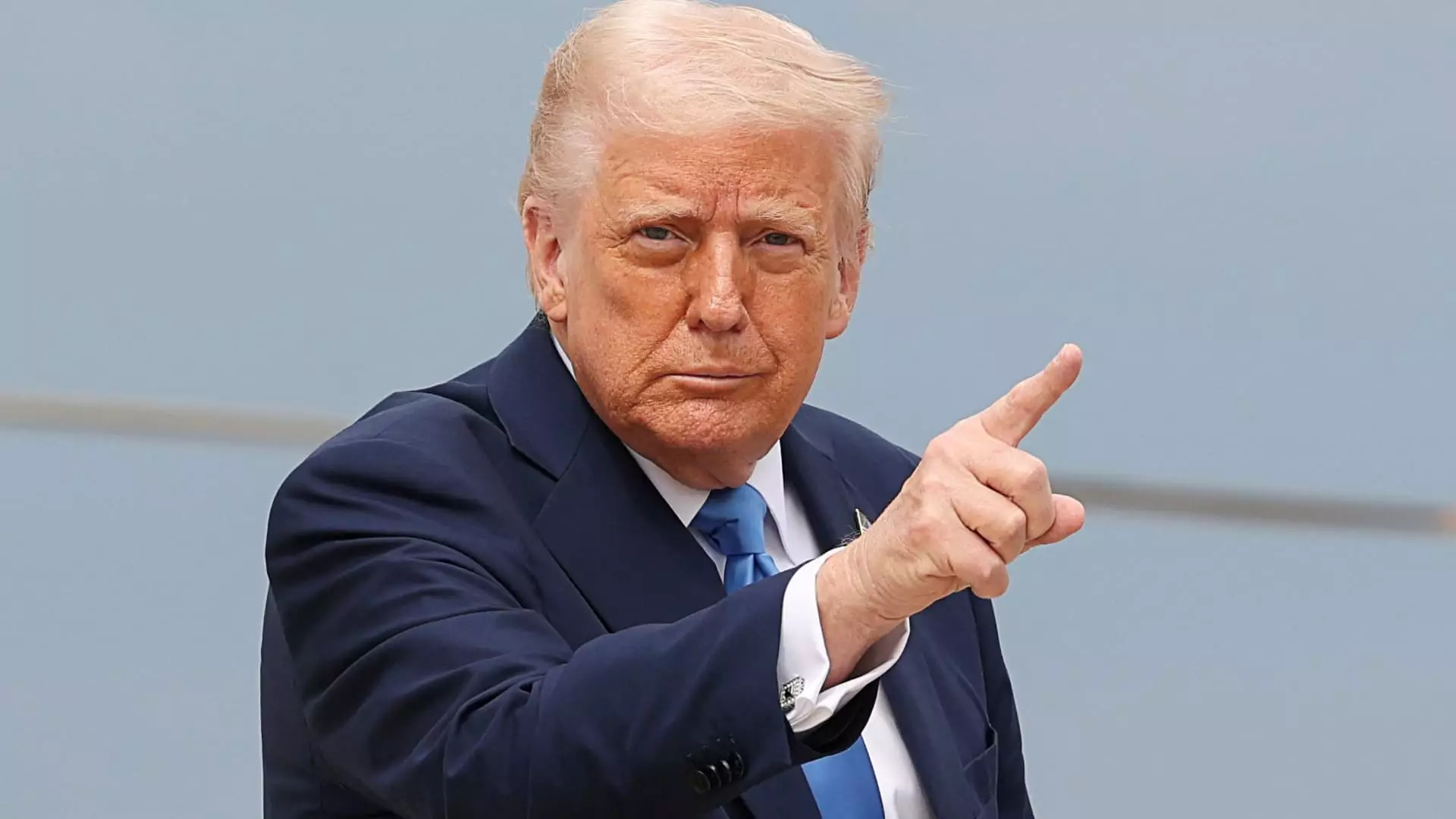In a bold and unsettling move, the Trump administration has embarked on a crusade against diversity, equity, and inclusion (DEI) initiatives, reaching beyond American borders to impose its will on European companies. U.S. government officials have begun dispatching stern letters to firms in France and across the European Union with American contracts, effectively warning them to renounce any DEI programs if they wish to maintain their financial ties with the U.S. government. This draconian strategy, reminiscent of an era when tolerance and acceptance were overshadowed by narrow-minded nationalism, is emblematic of a troubling shift that sees the imposition of American ideals—however misguided—on foreign soil.
The Coercive Nature of Compliance
The letters sent by U.S. officials delineate clear repercussions: companies must certify their adherence to federal anti-discrimination laws, a requirement that critically intertwines compliance with their financial arrangements with the U.S. government. The chilling implication of these actions is that DEI initiatives—concepts intended to foster inclusivity and equity—are being branded as violators of anti-discrimination laws. This toxic narrative could undermine significant progress in the workplace and society, revealing an administration willing to prioritize its own political agenda over globally accepted values of diversity.
International Relations at Risk
The ramifications of this policy extend far beyond just individual companies. The French government has articulated its concerns, expressing that such an aggressive push from the U.S. does not echo the values held by France, and by extension, many European nations. The failure to honor the rich tapestry of cultural inclusivity could lead to a fracturing of diplomatic relations, with the U.S. risking alienation from its oldest allies. In an era where global collaboration is essential—especially in confronting shared challenges like climate change and geopolitical tensions—these moves demonstrate a dangerous adversarial stance that seeks to coerce conformity.
Defiance from Major Players
Adding to the troubling atmosphere is the investigation launched against Walt Disney by the U.S. Federal Communications Commission. By doing this, the administration not only targets small firms but also sets its sights on major corporations with substantial influence. This creates a chilling effect on American businesses, where fear of governmental overreach discourages the promotion of inclusive practices. Such an atmosphere breeds a culture of silence, where the benefits of diversity are overshadowed by threats of punishment, and businesses hesitant to engage in discussions around equity may revert to outdated practices of exclusion.
The Underlying Ideology: A Stark Warning
This aggressive maneuver against DEI is not merely an administrative oversight; it reflects a pervasive ideological undercurrent that could define the future of American political discourse. The steps being taken send a daunting message to the rest of the world: the U.S. may prioritize a homogenous approach over the rich diversity that has historically fueled its success. As tensions brew not only in the realm of commerce but also in digital freedom and the right to express cultural diversity, the implications of these policies risk not just individual relationships but the very fabric of international cooperation necessary in our contemporary world.

Leave a Reply